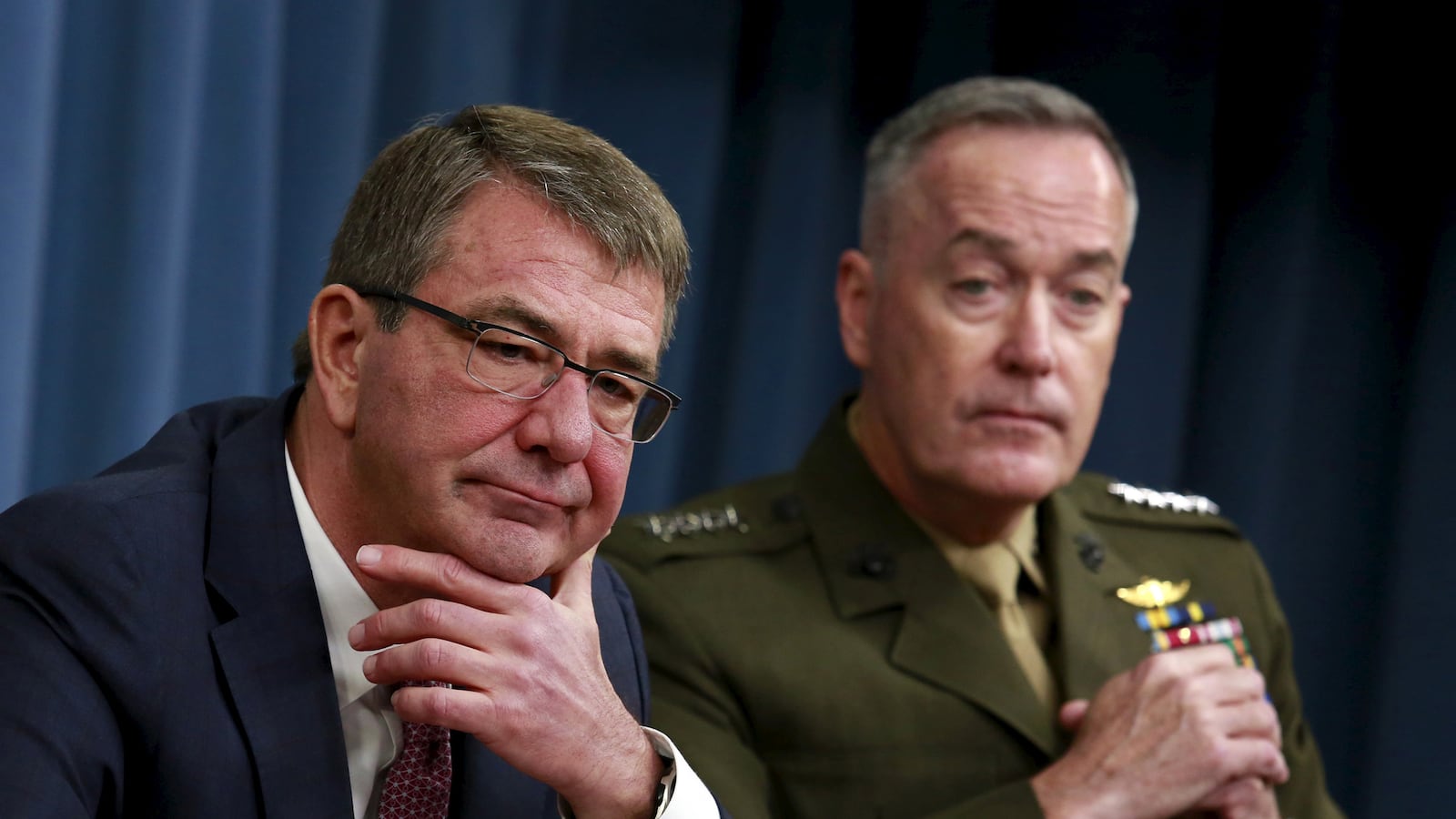U.S. Special Operations forces believe they killed the man some have called ISIS’s “second in command” in an operation inside Syria, according to a senior defense official.
Haji Imam, whose real name is said to be Abd ar-Rahman Mustafa al-Qaduli, is a senior religious leader of the self-proclaimed Islamic State and had been considered to be next in line to succeed “caliph” Omar al-Baghdadi, though some ISIS watchers say his Turkoman background ruled that out.
The official says U.S. forces killed a high-ranking official in a raid on his vehicle who they believe was Haji Imam, after they tracked him for several days. They had hoped to take him alive, but those in the vehicle apparently resisted and were killed.
Top Pentagon officials confirmed the operation Friday, but would not provide details. Defense Secretary Ash Carter and Chairman of the Joint Chiefs of Staff, Marine Gen. Joseph Dunford announced al-Qaduli’s death and the killing of the Islamic State’s “minister of war,” Tarkhan Batirashvili, a.k.a. Omar al-Shishani or “Omar the Chechen.”
“We are systematically eliminating ISIL’s cabinet,” Carter said, using the administration’s preferred term for the Islamic State.
Carter described Haji Imam as a senior ISIS leader serving as a finance minister and who also was responsible for some “external affairs and plots.”
“The removal of this ISIL leader will hamper the organizations ability to conduct operations both inside and outside of Iraq and Syria,” Carter said.
The Pentagon chief said it was not clear whether the man had direct ties to the November attacks in Paris or Tuesday’s attacks in Brussels.
“This is the second senior leader we have successfully targeted this month, after confirming the death of ISIL’s so-called minister of war,” he added.
The defense chiefs were reluctant to say ISIS was on the ropes, however.
“I think the momentum is in our favor,” Dunford said. “But by no means would I say that we’re about to break the back of ISIL or that—that the fight is over.”
Carter acknowledged that ISIS seems able to reconstitute its leadership, despite the success of the strikes.
“Striking leadership is necessary,” he said, “but as you know it’s far from sufficient.”
“These leaders have been around for a long time—they are senior and experienced and eliminating them is an important objective and result,” he added, but conceded, “They will be replaced and we will continue to go after their leadership.”
Still, the two major hits by the U.S. against ISIS are a fiery coalition riposte to the ISIS-claimed attacks in Belgium on Tuesday that claimed the lives of 31 people, including two Americans. Arrests continued across Belgium and also in France in the wake of the attacks, unearthing a network of European citizens who are part of what Belgian officials say is a wider network than they originally believed linked to the Paris attacks of last November that claimed 130 lives.
Around 50 special operators from the Joint Special Operations Command are operating throughout northern Syria, helping guide local forces’ military movements, teaching them how to share intelligence and call in airstrikes that have become increasingly more effective, and also carrying out a number of their own mostly undisclosed operations to degrade the ISIS network, U.S. military officials said, speaking anonymously because they were not authorized to describe the operations publicly.
Michael Weiss contributed to this story.






